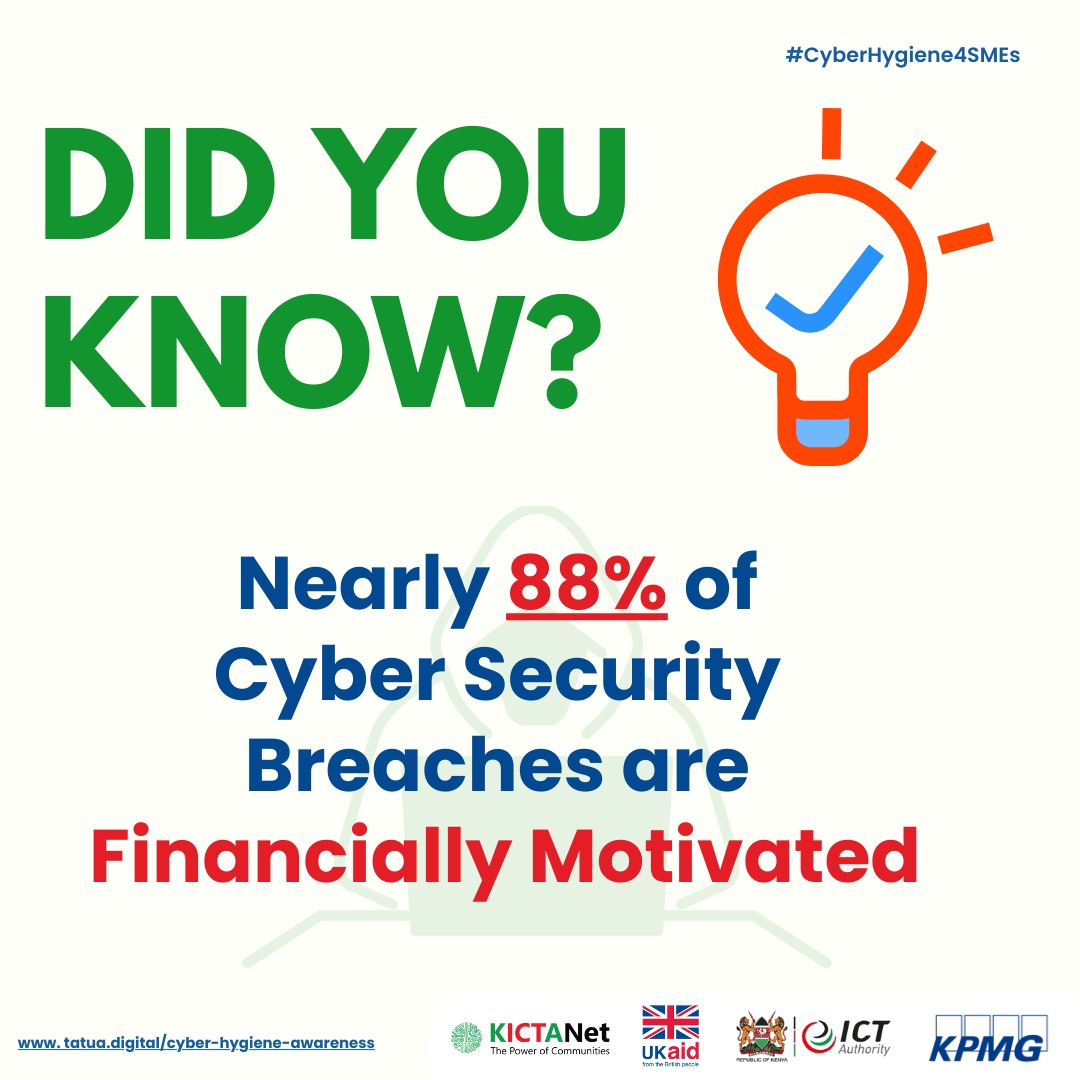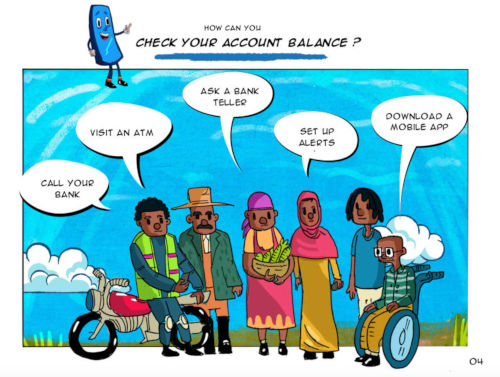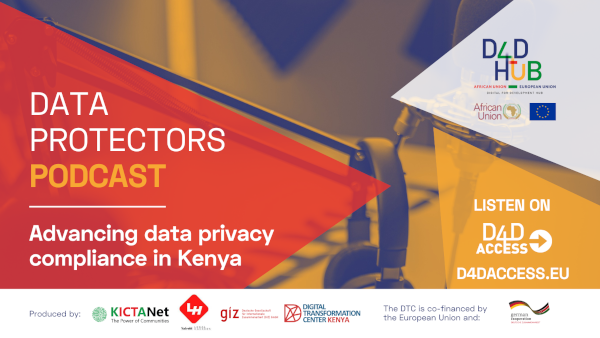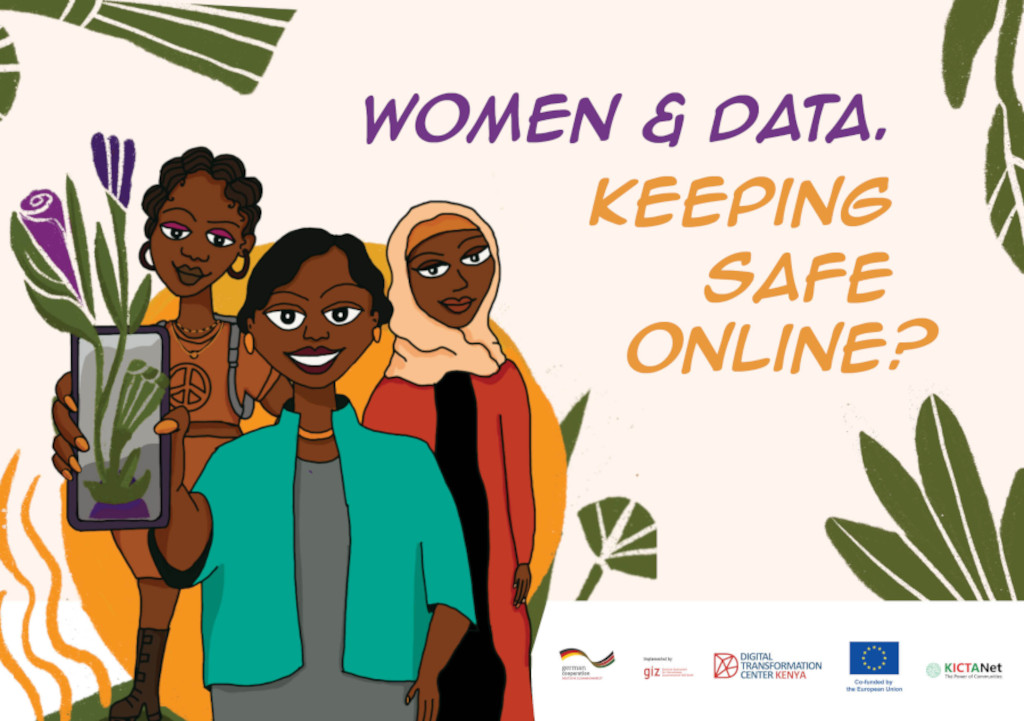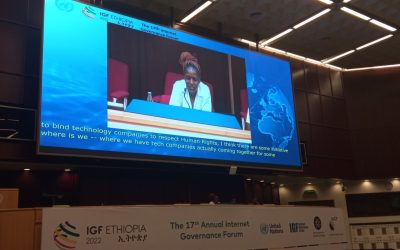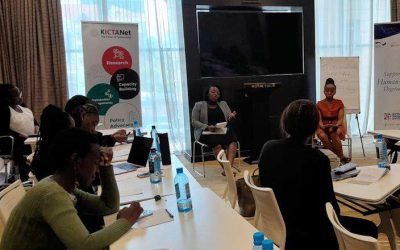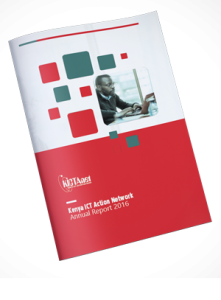KICTANET POST : Latest news, events & opportunities
Gender and the Machines
Everyone working in technology, digital rights, and Internet Governance can attest to how fast-moving the space is. This is because technology moves so fast, now is the time to talk about how that will impact our communities and countries. You will be left behind if...
KICTANet hosts a Roundtable Meeting on Gender and Data: The Role of ODPC in Women’s Data Protection
By Neema Mujesia KICTANet, with support from GIZ has been implementing a project to strengthen women’s online safety and data protection. As part of the project, KICTANet hosted a roundtable discussion on December 8, 2022, on the role of the Office of the Data...
Guest Post: Validity of Age Verification in the Era of Data Protection
By Maria Nambuya Age verification is a controversial subject regarding data privacy since it has attracted significant debate, particularly involving children or minors. The main concern is who will ensure that the child has a safe online environment. Is it the...
Blockchain Strategy – Did Kenya Drop The Ball?
By John Walubengo Kenya launched its Blockchain strategy with much fanfare in 2019 and then went deadly quiet. Three years later, a lot has happened in that space, both globally and locally, worth reviewing. But before then, please go through a previous blog to get a...
Inclusive Disability Language for Better Disability Tech Policy
Civil society and advocates for social justice have persistently championed reforms in tech policy to effectively address the impact of inequities in ICT in marginalized communities. Despite the best efforts, tech policy fails to understand or respond to the barriers...
AI – What Are The Legal and Ethical Dimensions
By John Walubengo So, the trending AI tool, ChatGTP has brought to light some ethical and legal dimensions that have plagued the AI industry for years. We look at some of them in this week's article using AI use cases. Self-Driving Cars Imagine the year is 2035, and...
KICTANet Guidebook on Data Protection and Privacy from a Gender Perspective
Kenya passed the Data Protection Act in 2019 to operationalise the right to privacy under Article 31 of the Constitution of Kenya, 2010. The Country is still trying to understand the ramifications of the Act in processing personal data and how to comply with the...
ChatGPT – What it is and Why You Should Care
By John Walubengo Over the last three weeks, the tech industry has been consumed by the latest artificial intelligence kid on the block, ChatGPT. But what exactly is it? What can it do or not do? And why should we care? We needed to ask someone to answer these...
2022 – Kenya ICT Year in Review
By John Walubengo As 2022 comes to an end and we get into the new year of 2023, it is customary to review the notable ICT events of the past year and draw up a wish list for the new year. We review some of the hits, the misses, and the possible future in ICTs. The...
KICTANet is a multi-stakeholder Think Tank for ICT policy and regulation. The Think Tank is a catalyst for reform in the Information and Communication Technology sector. Its work is guided by four pillars of Policy Advocacy, Capacity Building, Research, and Stakeholder Engagement.
KICTANet’s mission is to promote an enabling environment in the ICT sector that is robust, open, accessible, and rights-based through multistakeholder approaches.
During the 2022 – 2024 strategic period, KICTANet has prioritised the promotion of effective multistakeholder participation; an enabling legal, policy and regulatory environment; building capacities and empowered communities; and institutional strengthening. KICTANet’s guiding philosophy encourages synergies in ICT policy-related activities and initiatives. As such, the network provides mechanisms and a framework for continuing cooperation, engagement and collaboration in ICT matters among industry, technical community, academia, media, development partners, civil society and government.
_____
Strategic Priority.
- Convening power. To strengthen and promote engagement, collaboration and relationships with relevant stakeholders (state, business and non-state actors).
- Promoting an enabling environment. To catalyse policy, legislative and regulatory reforms in the ICT sector.
- Building capacities and empowered communities. To build the capacity of the stakeholders across government, business society and civil society and the citizens.
- Institutional strengthening.
The report outlines the work undertaken in between 2007 and 2016 which is underpinned by crowd sourcing and community engagement
Click here to download the report
FACTS AND FIGURES
Achievement of the Network over the Years
Publications
Thought Leadership Forums
Persons trained
Policy Interventions
Conversations in KICTANET listserv
Active listers contributing often
Different conversation threads
Impressions on ICT policy discussions
Our Pillars
KICTANet’s organisational strategy:
Policy Advocacy
Capacity building
Research
Stakeholder engagement
We facilitate stakeholder engagement through collaborative initiatives in face-to-face Town Hall meetings, and in the KICTANet?s interactive mailing list where multiple stakeholders engage regularly on ICT policy issues.


